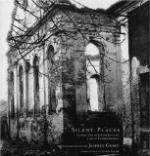There scarcely needed the row of glistening birch-barks below the men, the warehouse with its picketed lane, the tall flag-staff, the block-house stockade, the half-bred women chatting over the low fences of the log-houses, the squaws wandering to and fro in picturesque silence, the Indian children playing noisily or standing in awe before the veranda of the white house, to inform the initiated that this little forest- and river-girt settlement was a post of the Honourable the Hudson’s Bay Company. The time of sunset and the direction of the river’s flow would have indicated a high latitude. The mile-long meadow, with its Indian camp, the oval of forest, the immense breadth of the river identified the place as Conjuror’s House. Thus the blue water in the distance was James Bay, the river was the Moose; enjoying his Manila cheroot on the Factory veranda with the other officers of the Company was Galen Albret, and these men lounging on the river bank were the Company’s post-keepers and runners, the travellers of the Silent Places.
They were of every age and dressed in a variety of styles. All wore ornamented moccasins, bead garters, and red sashes of worsted. As to the rest, each followed his taste. So in the group could be seen bare heads, fillet-bound heads, covered heads; shirt sleeves, woollen jerseys, and long, beautiful blanket coats. Two things, however, proved them akin. They all possessed a lean, wiry hardness of muscle and frame, a hawk-like glance of the eye, an almost emaciated spareness of flesh on the cheeks. They all smoked pipes of strong plug tobacco.
Whether the bronze of their faces, thrown into relief by the evening glow, the frowning steadiness of their eyes, or more fancifully the background of the guns, the flag-staff and the stockade was most responsible, the militant impression persisted strongly. These were the veterans of an hundred battles. They were of the stuff forlorn hopes are fashioned from. A great enemy, a powerful enemy, an enemy to be respected and feared had hardened them to the unyielding. The adversary could almost be measured, the bitterness of the struggle almost be gauged from the scars of their spirits; the harshness of it, the cruelty of it, the wonderful immensity of it that should so fashion the souls and flesh of men. For to the bearing of these loungers clung that hint of greater things which is never lacking to those who have called the deeps of man’s nature to the conquering.
The sun dipped to the horizon, and over the landscape slipped the beautiful north-country haze of crimson. From the distant forest sounded a single mournful wolf-howl. At once the sledge-dogs answered in chorus. The twilight descended. The men gradually fell silent, smoking their pipes, savouring the sharp snow-tang, grateful to their toughened senses, that still lingered in the air.
Suddenly out of the dimness loomed the tall form of an Indian, advancing with long, straight strides. In a moment he was among them responding composedly to their greetings.




